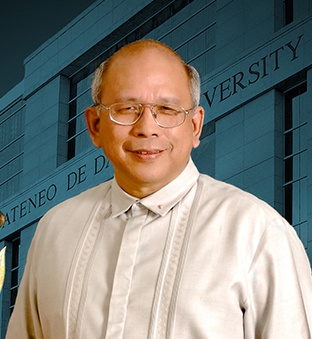Filtered By: Topstories
News
Jesuit thinkers warn 'theological bullying' driving away Catholics
By Amanda Lago, GMA News
As conservative Catholics continue to oppose what is now the RH Law, two leading Jesuit thinkers say the extended attacks are driving Catholics away from the church.
"The Catholic Church is in trouble – even in Catholic Philippines," Ateneo de Davao University president Fr. Joel Tabora, S.J. pronounced in a blog post last Thursday. "There ought to be great concern. People have been leaving the Catholic Church. People are about to leave the Church. What I am picking up is exasperation... People are tired of being treated as if they were younger than adolescents, of being scolded... People are tired of obstinate claims to absolute truth, when the thinking world continues to seek truth.  Tabora's own tone is exasperated: "The feeling is: people are being strangled by this truth. Their reaction: Stop the holier-than-thou discourse, the theological bullying, the magisterial declarations, not because what you have said may not have been important, but because what you have said, you have said over and over and over again. Now, you are a broken record. "Give me now my chance to consider the arguments, think it over, and let me decide. Entrust me and my decision to my compassionate Father. I would rather entrust myself to him who can send me to hell, than to you with your stringent conditions for heaven!"
Tabora's own tone is exasperated: "The feeling is: people are being strangled by this truth. Their reaction: Stop the holier-than-thou discourse, the theological bullying, the magisterial declarations, not because what you have said may not have been important, but because what you have said, you have said over and over and over again. Now, you are a broken record. "Give me now my chance to consider the arguments, think it over, and let me decide. Entrust me and my decision to my compassionate Father. I would rather entrust myself to him who can send me to hell, than to you with your stringent conditions for heaven!"

Fr. Joel Tabora, S.J. (Photo from Ateneo de Davao University website)
In another blog post, Tabora, who has a doctorate in Philosophy, also discussed the RH Law in detail, and said that he does not see anything about it that "prevents a good Catholic from being a good Catholic."
"For me it is remarkable with how much care the legislators of RA 10354 provide for our citizens’ fidelity to religious conviction," he wrote, citing several sections from the law. Bernas weighs in
Meanwhile, another influential Jesuit priest and a member of the 1986 Constitutional Commission, Ateneo Law School dean emeritus Fr. Joaquin Bernas, S.J., wrote in his column in the Philippine Daily Inquirer that he was "rather disturbed by preachers who use their opposition to the law as a way of defeating electoral candidates who favor or have favored the law."
"Tactics are being used which can have the effect of driving Catholics away from the Catholic Church or at least from Sunday Masses where the preachers subject the audience to prolonged attacks on the RH law and to threats of damnation against those who favor the law," he said.
Bernas was also unimpressed by the arguments that question the RH Law's constitutionality, saying that they "can be reduced to one sentence: 'The law is unconstitutional because it does not hew closely to the teaching of the Catholic Church on contraception.'" The two prominent Jesuits' candidness about the state of Catholicism in the Philippines, and the divisive effect anti-RH church conservatives have had on the flock, highlights the lack of consensus among the religious orders on the contentious law. The Dominicans who run the University of Santo Tomas have stood squarely behind the bishops on the RH issue, even abruptly postponing an election forum where pro-RH candidates were expected to attend. Last September, a Catholic bishop called for an investigation of pro-RH Ateneo de Manila University faculty and threatened to call for their termination if they were teaching ideas not aligned with church teachings. In the wake of a pro-RH statement by 192 Ateneo faculty, the university's president, Jose Villarin SJ, issued his own statement reiterating the school's official opposition to the RH bill but staunchly defended faculty members' academic freedom. “What our teachers have done is to stimulate critical thinking among our students," Villarin wrote.
Petition versus RH law
In January, six petitions were filed for a temporary restraining order (TRO) against the RH Law. Among the petitioners were James Imbong and his wife Lovely-Ann. Imbong is the son of CBCP legal counsel Jo Aurea Imbong.
According to an earlier story, the Imbongs in their petition called the RH Law "unconstitutional" and said that it "mocks the nation's Filipino culture--noble and lofty in its values and holdings on life, motherhood and family life--now the fragile lifeblood of a treasures culture that today stands solitary but proud in contrast to other nations."
In a separate column, Bernas also spoke of the current case against Carlos Celdran where the activist is being accused of "offending religious feelings" when he protested in the middle of an ecumenical service in 2010.
Bernas pointed out that those who defend the RH Law also have feelings that are offended when priests speak against RH Law supporters in church.
"When a priest or bishop castigates or consigns to the netherworld those who oppose the Reproductive Health Law in a sermon before a captive audience of churchgoers, should he be penalized by the State or canonically censured for offending religious feelings?" Bernas wrote. – HS, GMA News
More Videos
Most Popular



